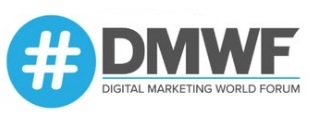
Sometimes, working in silos is essential — especially in an agency, where certain teams handle certain clients. If team members aren’t on the Coca-Cola account, they don’t have to go to the Coca-Cola budget meeting. However, silos can do more harm than good when it comes to collaboration between colleagues and teams. If you aren’t careful, they can impair healthy communication.
Finding a balance between working alone and working together can be difficult. Time management issues tend to come up when there’s either too much communication or too little. With too much, people can’t prioritise and end up wasting others’ time by overcommunicating. Not enough communication, on the other hand, leads to people rushing through projects and trying to meet unrealistic deadlines.
Ultimately, something in the middle is ideal. If you’re meeting and communicating at the right cadence, you’ll understand and be mindful of other people’s workloads, which will let you collaborate in the most efficient way possible.
Challenges to great communication and project management
Shared workloads and time management problems pose a unique challenge to agencies and project-based workers. Technology and digital tools have, in many ways, transformed agency work for the better, but tech has also swung the pendulum into communication overload, which is a problem that seriously affects productivity.
The average employee at a large company sends more than 200 Slack messages every week, and some send as many as 1,000 messages a day. Keeping up with these constant conversations can seem like a full-time job, so the software can be something that keeps you from getting work done instead of something that helps you work better.
Constantly being interrupted with questions, side conversations, and messages complicates projects and limits how efficiently they get done. We’ve all experienced trying to finish a time-sensitive deliverable while getting pinged repeatedly with pictures of a colleague’s sleeping cat. When those interruptions happen, it takes an average of 23 minutes and 15 seconds to get back on task, according to a study from the University of California, Irvine. The same study found that employees’ stress levels, frustrations, and mental exertions were significantly higher when they were interrupted.
All that said, there is one thing that can help agency leaders get a handle on finding a communication balance: project management.
How tech tools strengthen project management
Project managers are responsible for handling change. It’s their job to deal with changing deadlines, expectations, and project scopes, and they’re expected to make sure all creative and account work is getting done on time and within budget. Because of the evolving technological landscape, everything from social media to learning management systems to web tools can empower agency leaders and project managers to shift towards an on-demand, customised, and problem-specific approach to their work.
Not only that, but project management helps with overall company culture and health. We all want to feel like our time is respected and that we aren’t being taken advantage of. It’s human nature. Project management makes this possible by letting colleagues know what projects different teams are working on and how they’re progressing. Because of that, it encourages respectful collaboration, which makes the agency better overall.
How to keep project management and communication consistent
Knowing the pitfalls of overcommunication and the dangers of undercommunication, how can senior leaders respect their colleagues’ time and consistently communicate project expectations? Here are three recommendations.
- Have a communication plan: One of the best ways to find a communication balance and manage projects is to put a communication plan in place. Think through the best way to communicate with your teams, how often you need to touch base, and who you need to communicate with for what. Then, adapt the plan as needed.
Be sure that you’re also paying close attention to detail and following project progress. Don’t be afraid to follow up with team members about the status of a task. It’s part of your job to keep things moving in the right direction, so you have to be well-acquainted with each team member and where everything is.
- Hold teammates accountable: Don’t be afraid to hold your teams responsible for due dates. Using a project management tool to set task due dates is an easy way to do that. Holding people to specific dates can be challenging because you don’t want to cause tension with team members, but it’s a necessary part of the job. If you aren’t following through with your project management deliverables and duties, you’re likely throwing off the flow of other people and teams, too.
The key as a leader, then? Communicate early and often. This will set the tone for your work with team members and let them know from the start that you’re managing projects in their best interest. It also helps if you can share the next steps with teammates so they know what happens with the project after they meet their deadlines. Leave the lines of communication open so that your teammates feel comfortable talking to you about their needs and the progress they’re making.
- Set boundaries with external parties, too: You can make a difference as agency leaders by setting clear, fair boundaries with clients. Technology is amazing in many ways, but it can also open the doors to too much client communication. If clients have unreasonable requests or expectations for projects and timelines, it can keep the teams working on their projects from being efficient and delivering quality work.
Be kind and maintain a professional relationship with clients. The way you project yourself and your expectations sets the tone for the rest of the team. Set up regular check-ins (whether that is weekly or biweekly) with clients, where you can focus on reviewing deliverables and plan for the next steps together.
Even well-managed agencies struggle to find a communication balance. But establishing a plan, setting communication boundaries, and communicating regularly can help. More than that, refining project management within an agency keeps things on track and consistent, setting teams on a clear path to a better, more organised workplace.
 Interested in hearing leading global brands discuss subjects like this in person?
Interested in hearing leading global brands discuss subjects like this in person?
Find out more about Digital Marketing World Forum (#DMWF) Europe, London, North America, and Singapore.






